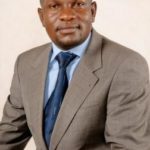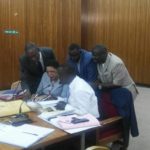Justice Catherine Bamugemereire’s Commission of Inquiry into Land matters will have to account for the first disbursement of Shs13 billion before it can receive extra funds it requires so badly to complete its work, a section of MPs have warned.
The MPs’ warning comes at the time when the Commission is in need of an extra Shs7.8 billion to accomplish its work.
MPs were yesterday responding to Speaker Rebbecca Kadaga’s guidance to the Physical Infrastructure Committee where she advised that the MPs stop demanding accountability from the Commission until its investigations in the land matters are complete. She said probing the committee at this time was premature and out of procedure.
But some MPs did not buy Speaker Kadaga’s idea and vowed they would petition the Budget Committee to scrutinize how Shs13 billion was used before they can approve the Shs7.8 billion supplementary funding to the Commission.
Busiro East MP Medard Lubega Sseggona (DP) wondered why the land probe committee has neglected the Public Finance Management Act, insisting the legislators’ demand for accountability was within the law.
“The demand for accountability before approving their supplementary request is not misplaced. Accountability is a requirement in the Public Finance Management Act,” Sseggona said, adding that Parliament, which appropriates the government budget, has a stake in how the commission spends the money.
“We are the appropriating authority, we set the terms because the Shs13b we have given them is a lot of money so they should justify why we should give them more,” Ssegona said.
The Bukomansimbi Woman MP, Veronica Nanyondo, also supported Ssegona, saying the Commission should account for public funds. “The good work of the Commission does not insulate them from providing accountability of funds they received,” she said, adding that the accountability was important for the MPs to know whether the money was put to good use.
The Justice Bamugemereire-led land probe commission has been on the spotlight over fat allowances and lavish spending. The commissioners, however insist that they are doing a ‘special job’ and that their investigations are expensive.
To buttress that argument, MP Abdul Katuntu and a few other members supported Speaker Kadaga, saying that demanding accountability from the Commission would disorganise its work.
However, although some MPs said the Auditor General would audit the Commission, MP Mathias Mpuuga (Masaka Municipality), said accountability was a must in the midterm.
“Commissions and projects need midterm accountability; post-mortems will not remedy a culture of impunity. How else do they explain the supplementary request, accountability is a must,” Mr Mpuuga said.
Others supporting the demand for accountability include Fort Portal Municipality MP Alex Ruhunda and Francis Mwijukye of Buhweju County.
But while some MPs have threatened to take the matter to the Budget Committee, Ms Lillian Nakate, the chairperson of the Committee on Physical Infrastructure, said they have no option but to heed to the Speaker’s guidance.
“As an oversight Committee, we have done our part but since the Speaker has guided, we have to respect that and wait,” she said.
In April President Yoweri Museveni directed Finance Ministry to give the commission an the extra Shs7.8 billion to complete business. The team has already handed in an interim report. The commission received 5,600 cases and traversed the country except West Nile.
Meanwhile, the Commission had been given an ultimatum of six months to come up with the report, but due to pubic demand and increased land cases, the President and the finance ministry added the commission money to ensure that they listen to every Ugandan who had issues with land. In the last 11 months, out of 6,000 the commission has handled 1,500.
From the media coverage, all regions where the commission has gone, it has exposed, arrested and grilled land grabbers, government officials who sell government and public land, politicians, rich security officers who use their powers to grab, torture and those who use other means to cause land problems in Uganda.
The commission has gone to the extent of calling senior citizens in the country, where by some have been proven guilty, while others give false information to the commissioners, which has led them into Police cells.
Interestingly, despite the notable achievements, recently the Inspector General of Government (IGG) and the Permanent Secretary of the finance ministry, promised to investigate the Bamugemereire Commission over accountability.
This development has since caused multiple arguments, with some people saying that since the commission has exposed some big government officials in land matters, some of the affected people who hold government jobs have also decided to investigate the commission’s spending of Shs13 billion. Others, mainly the Opposition, have come up to say this is a lot of money spent on a Commission of less than ten members.
On December 8, 2016 President Yoweri Museveni appointed and swore in a commission of inquiry into land matters to among other tasks:
Investigate and inquire into the law, processes and procedures by which land is administered and registered in Uganda.
Investigate and inquire into the role and effectiveness of the Uganda Land Commission (ULC) in administering public land and the Land Fund.
Investigate, inquire into and review the effectiveness of the relevant bodies in the preservation of wetlands, forests and game reserves and examine ways in which the challenge of human habitation in those areas can be resolved.
To investigate, inquire and solicit views on the role of traditional, cultural and religious institutions, who own large tracts of land with occupants in a bid to enhance better landlord/tenant relationships.
To assess the legal and policy framework on government land acquisition.
To identify, investigate and inquire into the effectiveness of the dispute resolution mechanisms available to persons involved in land disputes.
To inquire into any other matter connected with or incidental to the matters aforesaid and make recommendations.
The Commission shall make recommendations:
For improving the efficiency and effectiveness of the law, policies and processes of land acquisition, land administration, land management and land registration in Uganda and proposing necessary reforms.
Pertaining to civil, administrative and criminal sanctions against persons found culpable for wrong doing.








